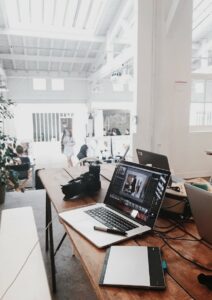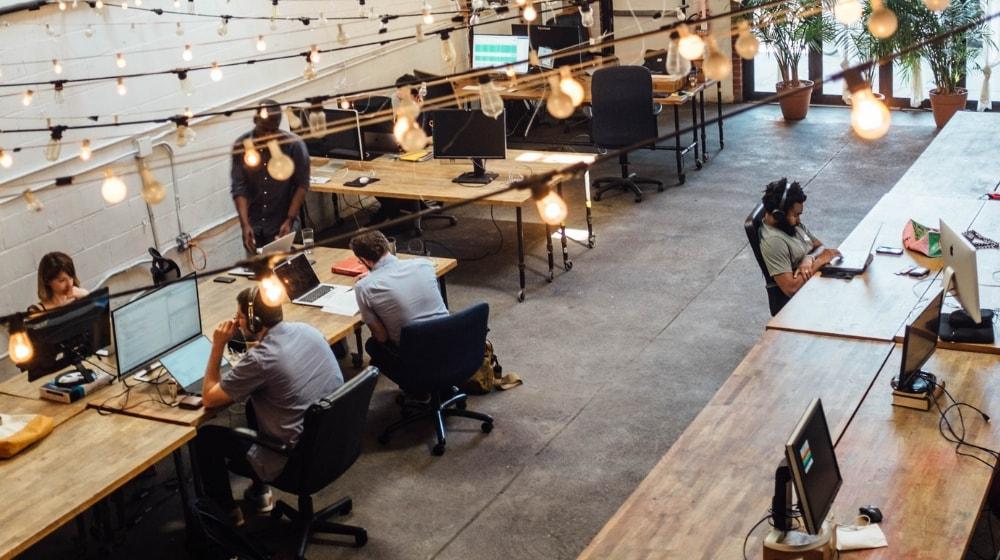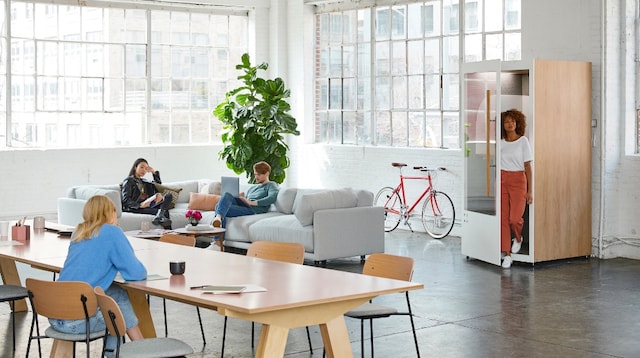As a freelancer or entrepreneur, picking a suitable work environment is critical for your success. Chances are, you have considered the possibility of coworking spaces, where you can rent a desk for an hour, a week or a month.
Working from home, a beach or at your local cafe can have its advantages. But for reasons we will discuss later, these environments can prove to be bad for productivity.
A longer-term solution is to lease an office space.
However this often results in high upfront costs with inflexible rental agreements demanding at least a six to 12 month bank guarantee. And if you’re just starting out, that has to hurt the pocket!
Option C
That’s where coworking spaces come in. These trendy spaces are designed for:
- Freelancers
- Entrepreneurs
- Independent professionals
They’re made for people who have no official ties to one another, but wish to work with others in a collaborative and communal setting.
They’re generally open-plan, with private rooms for meetings, phone calls, events and socialising.
There are also some coworking companies that allow digital nomads to use any of their offices worldwide. Desks are rented by the month, the week or hour — it's really up to you.
Plenty of choice in Australia
In Australia, coworking has gathered significant momentum over the past couple of years. In fact, the number of coworking spaces grew by 297% between 2013 and 2017 according to research from Knight Frank.
Melbourne currently hosts 50% of the country's total coworking spaces, followed by Sydney at 38%. It doesn’t look like the growth will slow down anytime soon, with spaces set to triple by 2030.
Related: Starting a business in Australia
What to look for in a coworking space
Coworking spaces are a great option for freelancers and independent professionals who can’t (or don’t want to) work at home. Here’s what to look for in an ideal space:
- Location, location, location.
- Size, feel and look of the space.
- Can your allotted space grow as your business grows?
- What’s included in the membership package.
- What support is available on-site?
Scan our list of things to look for, then keep reading to learn the good and the not so good of coworking.
1. Location, location, location
Choose a location that's the right fit for your commute time and team (if you have one). Central Business District (CBD) locations are often more expensive, so this needs to be considered too. Most coworking spaces are on the fringes for this reason.
Look at the amenities available including bathrooms and kitchen. Some workspaces have their own on-site cafes, which can be handy if you’re a caffeine addict.
2. Size, feel and look of the space
Your coworking space will be your home away from home. So go check out the feel and make sure it’s the right vibe for you. Ask about who else is there in case they could be potential clients or ones you might collaborate with further down the track.
3. Can your allotted space grow as your business grows?
The flexibility of a workspace membership is important. Sometime in the future, you may need to add an extra seat or two, so it’s important to ask this question from the start.
4. What’s included in the membership package?

Are there additional charges for:
- Meeting rooms
- Photocopying
- Phone calls, etc
You’ll need to be clear on the various packages and what's included before signing the dotted line.
5. What support is available on-site?
Have a chat with the community managers and see if you gel well with them. You’ll be dealing with them a lot, especially in the first couple of weeks while you get settled in.
Also, ask what the technology is like on-site. If there are IT or internet connection issues, how will these get resolved? It can be super counterproductive if you’re waiting days to get something resolved.
Freelancers, millennials fueling the growth in these spaces
The growing popularity of coworking is fueled by the rising number of freelancers and millennials demanding flexibility.
Millennials and Gen Z workers prefer freelance work, as they see the clear benefits of flexibility and job satisfaction.
Coworking spaces have become an integral part of this shift to more flexible and independent work arrangements.
LaunchVic chief executive Dr. Kate Cornick says one reason coworking spaces are so popular with startups is they are an easy way for a company to cope with rapid growth:
"If you've got a grand vision to grow to a company of 100 employees, you don't want to be paying for 100 desks when there are only five of you.”
Benefits of coworking spaces
While coworking spaces have so many advantages, it may not be the best solution for everyone. We all work differently and some of us might be more productive at home or at the cafe.
Many spaces offer free trials and site tours, so you should at least give it a go to see if it’s right for you.
Here are some of the main benefits of coworking:
Create boundaries between work and home
It’s hard to be self-disciplined when you work from home. You can get distracted by your bed, TV and the basket of dirty laundry. When you separate home from work, it allows you to get out there and get to work.
Avoid loneliness and improve social life
Working alone can be isolating and affect mood. Being in an environment with like-minded and driven individuals can help combat loneliness.
One of the biggest drawbacks of leaving a traditional nine-to-five job is losing the opportunity to meet new people and bounce ideas off each other. Jobs provide us with new friends, office banter and opportunities to socialise.
Get more business
Because you’re in an environment full of talented and creative people, they may be able to introduce you to new ideas and other people including:
- New clients
- Opportunities you may not have learned about otherwise
In a world where it's about who you know, not necessarily what you know, networking is critical for business success.
Stable work environment
It can be difficult to be productive and get anything done when you’re playing musical chairs in busy cafes. In case you have to make important calls, the noise in coffee shops can be frustrating — both for you and the people around you.
Thankfully, many coworking spaces have phone booths or quiet rooms where you can have a confidential discussion with clients. Some other reliable advantages of coworking spaces over cafes are 24-hour access and free printing in case you need it.
Reducing overheads

This is the most important one. A coworking space makes more financial sense than renting your own office. Leasing an office includes taking care of fit-outs, utility bills and insurance, just to name a few.
The staff in the coworking space takes care of the details so you don’t have to stress.
An office lease also requires signing a long-term contract usually for a minimum period of one year. With the pace of our world, it's hard to know what's happening four months down the track. Coworking spaces allow you to rent your desk — or even a room — for a few days, weeks or a month. So you can focus on delighting your clients.
The drawbacks of coworking
While there are so many benefits to coworking, there are a few drawbacks too:
- The risk of distraction since it is open plan, with a few businesses under the same roof.
- You might be vulnerable if your business competitors are occupying the same coworking space
- You may also struggle with confidentiality on phone calls with clients or to keep private information protected in public areas
All of these factors need to be carefully considered when choosing a coworking space.
Definitely worth a look
In summary, coworking is a great solution for entrepreneurs, startups and freelancers looking for a place to work. It has never been easier for professionals to set themselves up to work independently outside of the confines of a large organisation.
Coworking offers a low-cost way to do business, meet new people and collaborate.
It’s no wonder it’s so popular and growing rapidly around the world. The rise in coworking is a reflection of the changing nature of work and how more and more people are demanding flexibility.







